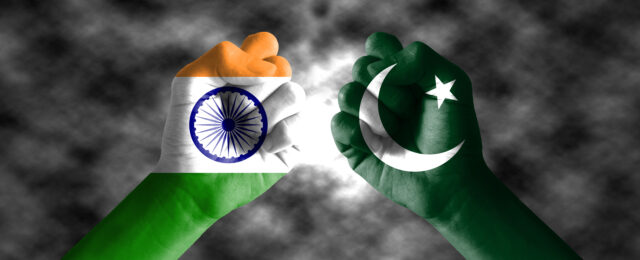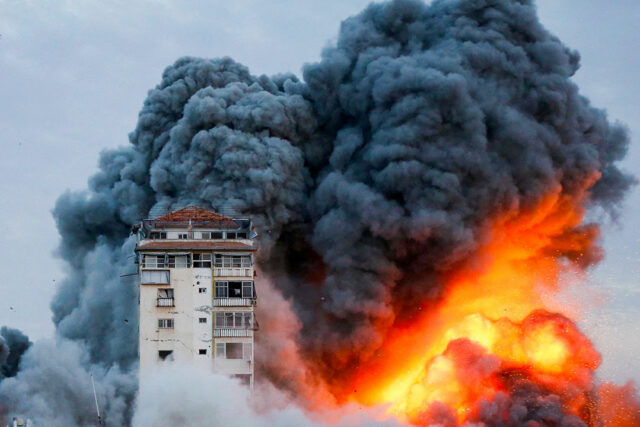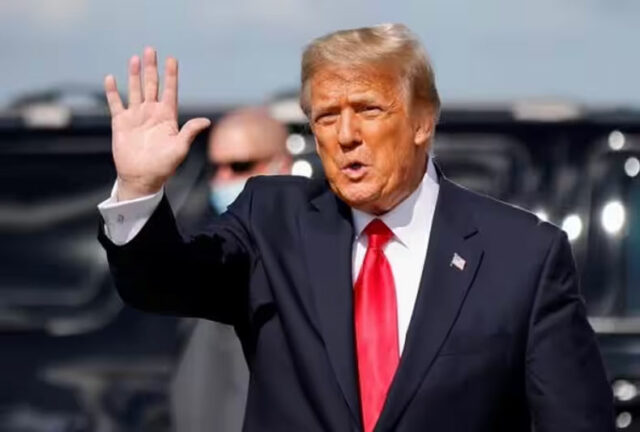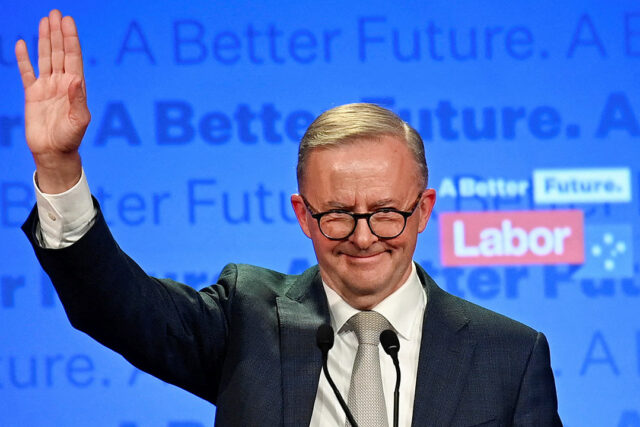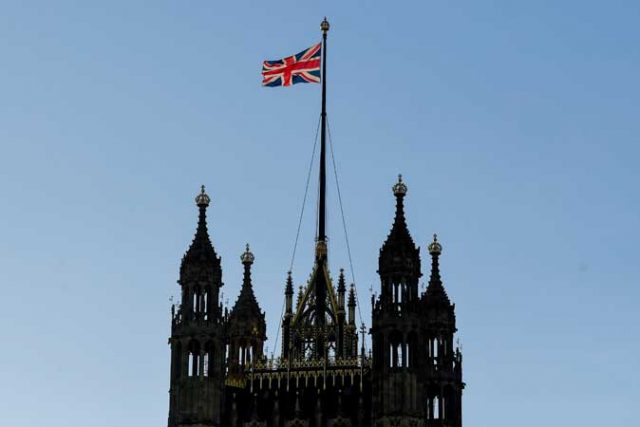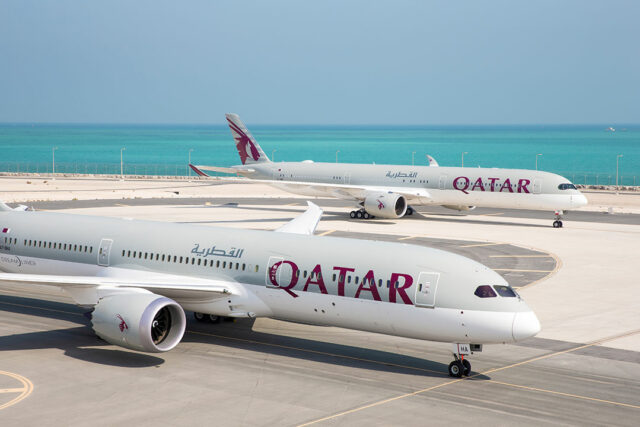ISLAMABAD/NEW DELHI — At 2:09 a.m. on Saturday, Ahmad Subhan, who lives near an air base in the Pakistan military garrison city of Rawalpindi, heard the first explosion that rattled the windows of his house — and took South Asia to the brink of war.
As dawn broke, the heaviest fighting in decades between nuclear-armed India and Pakistan reached a crescendo, after nearly three weeks of escalating tensions.
Fighter jets and missiles crisscrossed the skies of one of the world’s most populated regions. Pakistani officials said they would convene an emergency meeting of their top nuclear decision-making body.
The critical eight-hour window also saw Indian missile barrages on three major Pakistani air bases and other facilities, including Nur Khan, which is ringed by civilian homes like Mr. Subhan’s, and just a 20-minute drive to the capital, Islamabad.
After the initial blast, Mr. Subhan and his wife grabbed their three children and ran out of their home. “We were just figuring out what had happened when there was another explosion,” said the retired government employee, who remembered the precise time of the strike because he was just about to make a call.
This account of Saturday’s events, which began with the looming specter of a full-blown war and ended with an evening cease-fire announcement by US President Donald Trump, is based on interviews with more than a dozen people, including US, Indian and Pakistani officials, as well as Reuters’ review of public statements from the three capitals.
They described the rapid escalation of hostilities as well as behind-the-scenes diplomacy involving the US, India and Pakistan, and underscore the key role played by Washington in brokering peace.
The attack on Nur Khan air base saw at least two missile strikes as well as drone attacks, according to Mr. Subhan and two Pakistani security officials, who like some of the people interviewed by Reuters, spoke on condition of anonymity.
The barrage took out two roofs and hit the hangar of a refueling plane, which was airborne at the time, according to one of the officials, who visited the base the next day.
A senior Indian military officer, however, told reporters on Sunday that an operations command center at Nur Khan had been hit.
“The attack on Nur Khan… close to our capital, that left us with no option but to retaliate,” Pakistan Foreign Minister Ishaq Dar told Reuters.
Nur Khan is located just over a mile from the military-run body responsible for Pakistan’s nuclear planning.
So, an attack on the facility may have been perceived as more dangerous than India intended — and the two sides should not conclude that it is possible to have a conflict without it going nuclear, said Christopher Clary, an associate professor at the University at Albany in New York.
“If you are playing Russian roulette and pull the trigger, the lesson isn’t that you should pull the trigger again,” said Mr. Clary.
India’s Defense and Foreign ministries, as well as Pakistan’s military and its Foreign Ministry, did not immediately respond to written questions submitted by Reuters.
A US State Department spokesperson did not directly respond to questions from Reuters about the American role but said further military escalation posed a serious threat to regional stability.
VANCE CALLS MODI
India and Pakistan have fought three major wars and been at loggerheads since their independence. The spark for the latest chaos was an April 22 attack in Indian Kashmir that killed 26 people, most of them tourists. New Delhi blamed the incident on “terrorists” backed by Pakistan, a charge denied by Islamabad.
It was the latest of many disputes involving Kashmir, a Himalayan territory ravaged by an anti-India insurgency since the late 1980s. Both New Delhi and Islamabad claim the region in full but only control parts of it.
Hindu-majority India has accused its Muslim-majority neighbor of arming and backing militant groups operating in Kashmir, but Pakistan maintains it only provides diplomatic support to Kashmiri separatists.
After a go-ahead from Prime Minister Narendra Modi, the Indian military on May 7 carried out air strikes on what it called “terrorist infrastructure” in Pakistan, in response to the April attack in Kashmir.
In air battles that followed, Pakistan said it shot down five Indian aircraft, including prized Rafale planes New Delhi recently acquired from France. India has indicated that it suffered losses and inflicted some of its own.
Senior US officials became seriously concerned by Friday, May 9 that the conflict was at risk of spiraling out of control, according to two sources familiar with the matter.
Another source familiar with the matter said US Secretary of State Marco Rubio held a series of calls from May 6-8 with Indian and Pakistani officials, including with Pakistani Prime Minister Shehbaz Sharif and the foreign ministers and national security advisers of both countries.
Then on the morning of May 9, Mr. Rubio and US Vice President JD Vance discussed with Mr. Trump in the Oval Office a plan for Mr. Vance to call Mr. Modi to underscore that Washington “believed there was a high probability for dramatic escalation as the conflict entered its fourth day,” the source said.
“The vice president encouraged Modi to consider de-escalatory options, outlining a potential off-ramp that Secretary Rubio and his staff understood the Pakistanis would be amenable to,” the source added.
Mr. Rubio then engaged in “a marathon session of telephone diplomacy” with Indian and Pakistani officials into the early morning of May 10 to get the parties talking and reach an agreement on a cease-fire, the source said.
The US intervention came despite Mr. Vance saying publicly on Thursday that the US was “not going to get involved in the middle of war that’s fundamentally none of our business.”
The sources didn’t provide specifics but said Mr. Modi was non-committal. One of the people also said that Mr. Modi told Mr. Vance, who had been visiting India during the Kashmir attack, that any Pakistani escalation would be met by an even more forceful response.
Hours later, according to Indian officials, that escalation came: Pakistan launched attacks on at least 26 locations in India in the early hours of May 10.
Pakistan said their strikes occurred only after the pre-dawn Indian attack on its air bases, including Nur Khan.
NUCLEAR SIGNALS
A little over an hour after that Indian attack began, Pakistan military spokesman Lt. Gen. Ahmed Sharif Chaudhry confirmed Indian strikes on three air bases.
Some Indian strikes on Saturday, May 10 also utilized the supersonic BrahMos missile, according to a Pakistani official and an Indian source. Pakistan believes the BrahMos is nuclear-capable, though India says it carries a conventional warhead.
By 5 a.m. local time on Saturday, Pakistan’s military announced it had launched operations against Indian air bases and other facilities.
About two hours later, Pakistani officials told journalists that Mr. Sharif had called a meeting of the National Command Authority (NCA), which oversees the nuclear arsenal.
Dar told Reuters on Tuesday that any international alarm was overblown: “There was no such concern. There should not be. We are a responsible nation.”
But signaling an intention to convene NCA reflected how much the crisis had escalated and “may also have been an indirect call for external mediation,” said Michael Kugelman, a Washington-based South Asia expert.
About an hour after the NCA announcement, the US said Rubio had spoken to Pakistan Army Chief Gen. Asim Munir — widely regarded as the most powerful man in that country — and was pushing both sides to de-escalate.
Mr. Rubio also soon got on the phone with Mr. Dar and Indian Foreign Minister S. Jaishankar.
“Rubio said that Indians were ready to stop,” Mr. Dar told Reuters. “I said if they are ready to stop, ask them to stop, we will stop.”
An Indian official with knowledge of Mr. Rubio’s call with Jaishankar said that Rubio passed on a message that the Pakistanis were willing to stop firing if India would also cease.
‘GREAT INTELLIGENCE’
Pakistan Defense Minister Khawaja Muhammad Asif, who only days earlier warned of conflict, dialed into a local TV news channel at around 10:30 a.m. on Saturday.
Two-and-a-half hours after Pakistani officials shared news of the NCA meeting, Mr. Asif declared that no such event had been scheduled, putting a lid on the matter.
The international intervention anchored by Mr. Rubio paved the way to a cessation of hostilities formalized in a mid-afternoon phone call between the Directors General of Military Operations (DGMO) of India and Pakistan. The two spoke again on Monday.
Mr. Chaudhry said in a briefing that New Delhi had initially requested a call between the DGMOs after the Indian military’s May 7 strikes across the border.
Islamabad only responded to the request on Saturday, following its retaliation and requests from international interlocutors, according to Mr. Chaudhry, who did not name the countries.
Asked about Mr. Chaudhry’s remarks, a spokesperson for India’s Defense Ministry referred Reuters to a statement made by Indian DGMO Lt. Gen. Rajiv Ghai on Sunday. Mr. Ghai said he had reached out to his Pakistani counterpart on May 7 after the Indian strikes in Pakistan to communicate New Delhi’s “compulsion to strike” back at “terror” infrastructure, but his request for a call was turned down.
Almost exactly 12 hours after Pakistan said it had launched retaliatory strikes against India for hitting three key air bases on May 10, Mr. Trump declared on social media there would be a cessation of hostilities.
“Congratulations to both countries on using common sense and great intelligence,” he said. — Reuters




